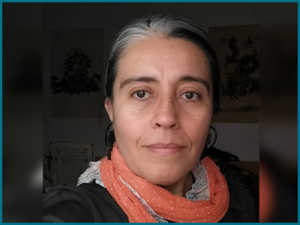There is nothing post-conflict about Colombia

This is the first of two blogposts on KAIROS’ recent visit to Colombia. Read the second blogpost KAIROS Partners in Colombia
First there are the facts and figures:
Since the Colombian government and the FARC (Revolutionary Armed Forces of Colombia) signed the peace accords in 2016, nearly 600 human rights defenders have been assassinated, according to Indepaz, the Colombian Institute for Development and Peace Studies. The very people who are working directly on peacebuilding are being targeted for their efforts.
Countless others have received death threats, forcing them, along with their families, to be internally displaced. Such is the case of Mauricio Antonio Quiñones Angulo, a human rights defender and labor leader from the Nariño department of Colombia who is affiliated with the Mesa Ecuménica por La Paz (Ecumenical Forum for Peace, MEP), a KAIROS partner organization in Colombia.
Maurico, his wife, and three children have had to flee on several occasions.
In May of this year, Francia Márquez, the recipient of the 2018 Goldman Prize, survived an assassination attempt.
Colombia’s current administration has exerted little political will in terms of the implementation of the peace accords. The Colombian government has made considerable cuts to the different entities tasked with implementing the peace agreement. The Truth Commission’s budget was cut by forty percent, for example.
The peace agreement between the Colombian government and the FARC was heralded a landmark for its inclusion and consideration of gender. But according to a special report by the Kroc Institute for International Peace Studies, only twenty-two percent of the 130 gender-based stipulations have been completed and thirty-seven percent have not even been initiated.
Then, there are recent events:
FARC leader Jesús Santrich, who faces drug trafficking charges in the U.S., disappeared over the weekend of June 29th. It is still unclear whether he escaped his security detail or was kidnapped or assassinated. His whereabouts remain unknown.
Meanwhile, the ELN (National Liberation Army) celebrated its 55-year anniversary this past July 3. ELN members burned and tagged cars in rural outposts across the country—stirring fear in many Colombians.
The case of Santrich and the ELN disclose an atmosphere of uncertainty and insecurity that is palpable on the ground. Santrich’s disappearance and the ELN’s public celebrations make evident that Colombia is not in a post-conflict era and announce the fragility surrounding the possibility of any peace talks between the government and the ELN.
Gabriela Jiménez is KAIROS Canada’s Latin America Partnerships Coordinator.




